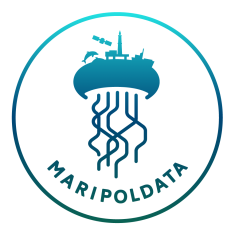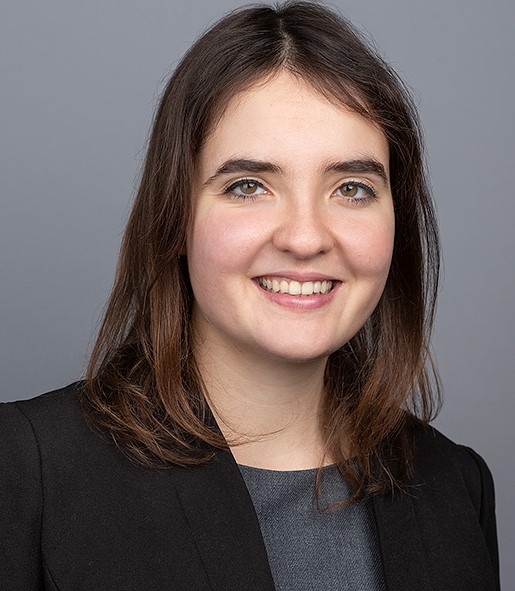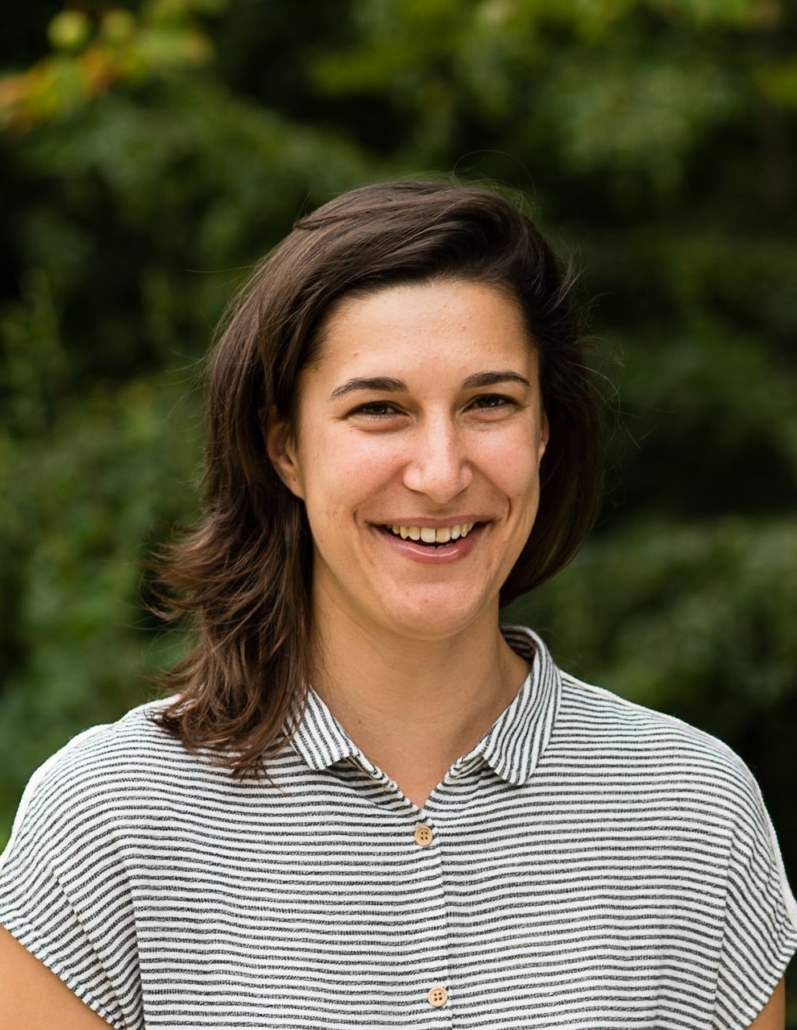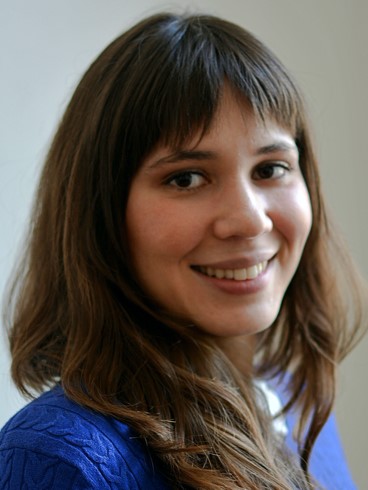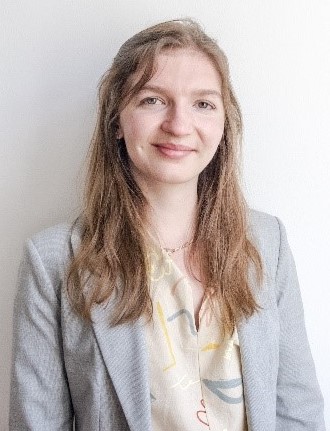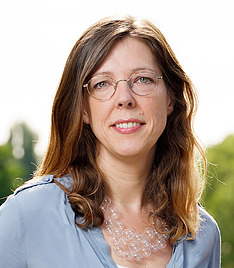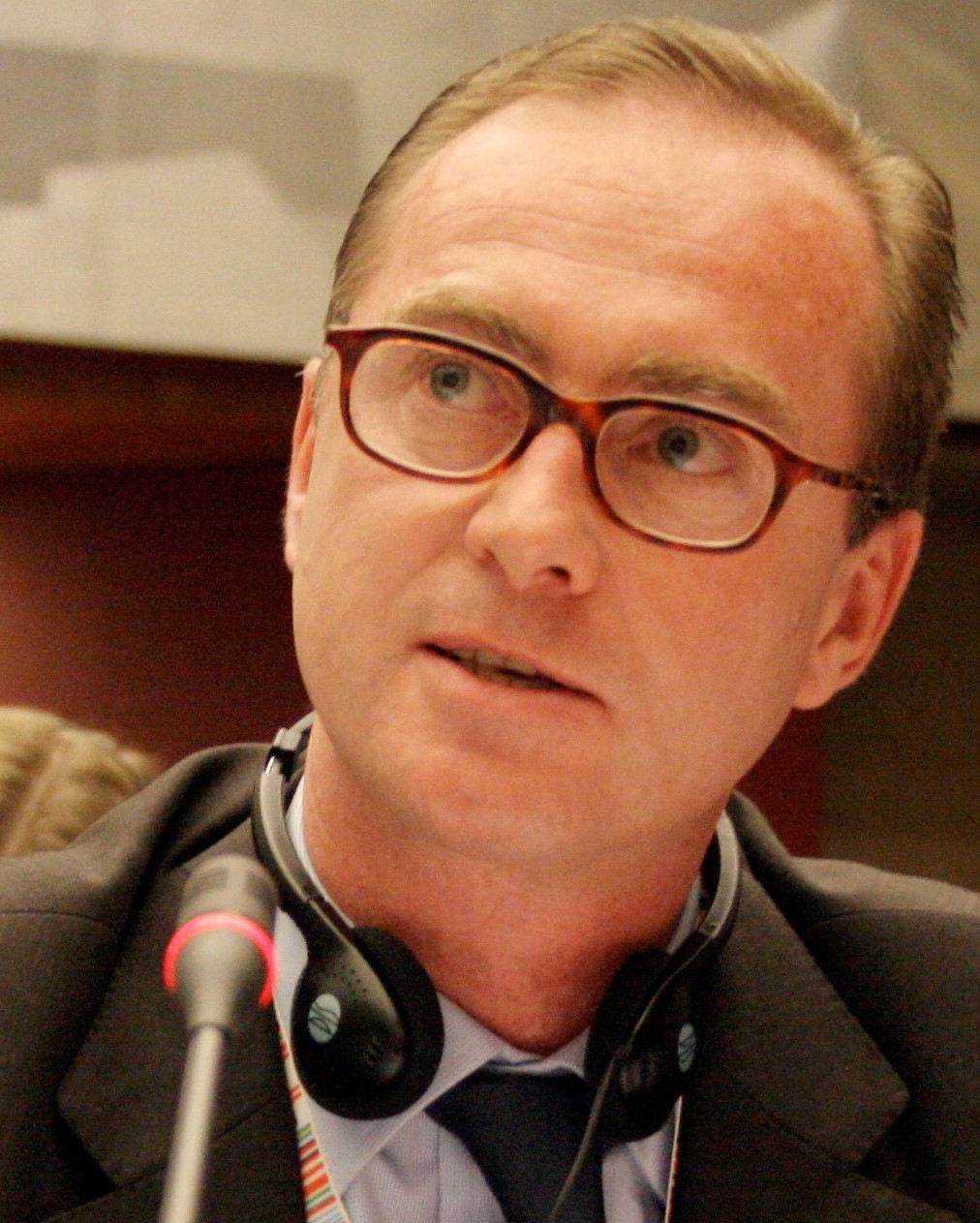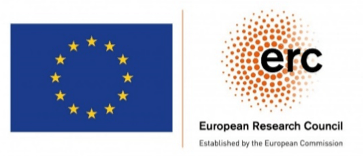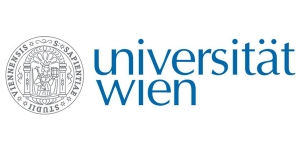OVERVIEW
MARIPOLDATA is an ERC Starting Grant project running from November 2018 to October 2023. A research team led by the Principal Investigator Dr. Alice Vadrot develops and applies a new interdisciplinary and multi-scale approach to study new forms of power at the intersection between science, and politics. The project uses ongoing negotiations on a new international legally binding instrument under the United Nation Convention on the Law of the Sea (UNCLOS) on the conservation and sustainable use of marine biological diversity of areas beyond national jurisdiction (BBNJ) to study these processes in action.
Marine biodiversity data will play a central role: Firstly, in supporting intergovernmental efforts to identify, protect and monitor marine biodiversity. Secondly, in informing governments interested in particular aspects of marine biodiversity, including its economic use and its contribution to biosecurity. In examining how this data is represented and used, this project will create a novel understanding of the materiality of science-policy interrelations and identify new forms of power in global environmental politics as well as develop the methodologies to do so.
This is crucial because the capacities to develop and use data infrastructures are unequally distributed among countries and global initiatives for data sharing are significantly challenged by conflicting perceptions of who benefits from marine biodiversity research. Despite broad recognition of these challenges within natural science communities, the political aspects of marine biodiversity data remain understudied. Academic debates tend to neglect the role of international politics in legitimising and authorising scientific concepts, data sources and criteria and how this influences national monitoring priorities.
The central objective of MARIPOLDATA is to overcome these shortcomings by developing and applying a new multiscale methodology for grounding the analysis of science-policy interrelations in empirical research.
Information in different languages:
TEAM
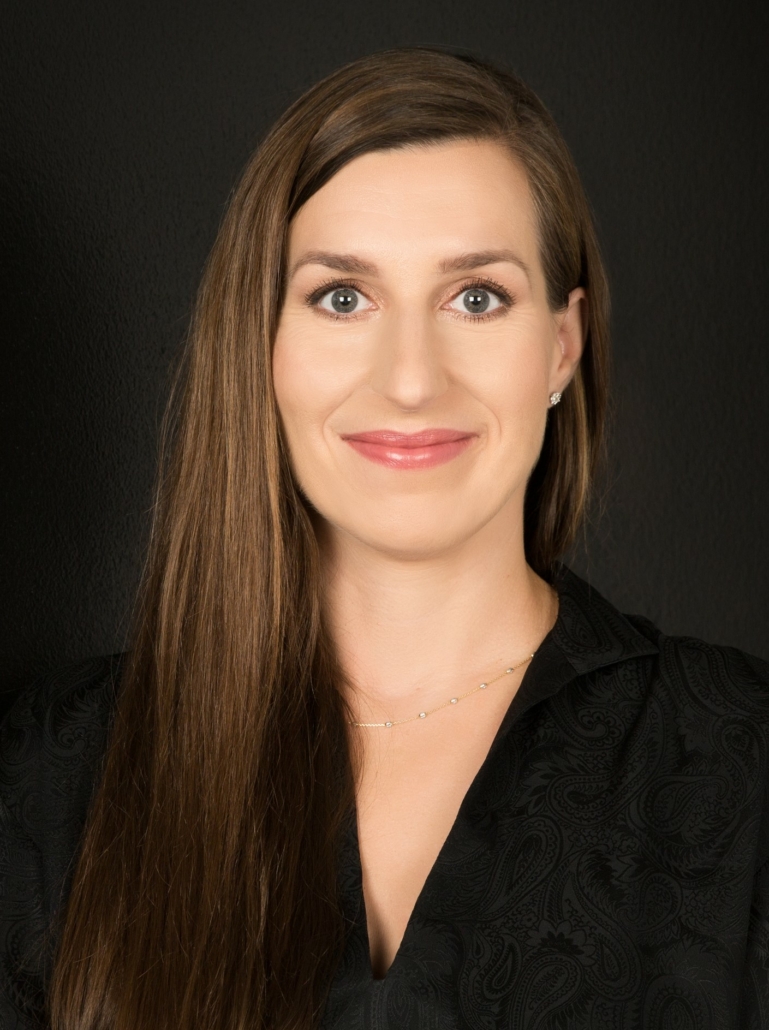
Assoz. Prof. Dr.
Alice Vadrot
Principal investigator
Alice Vadrot is Associate Professor for International Relations with a focus on Environmental Politics at the Department of Political Science of the University of Vienna and Visiting Research Fellow at the Centre for Science and Policy (CSaP) of the University of Cambridge.
Vadrot holds a PhD in Political Science from the University of Vienna, which she completed in 2013. From 2015 to 2018, she was an Erwin Schrödinger Fellow of the Austrian Science Fund. She did her postdoctoral research at the University of Cambridge and returned to Vienna as a Senior Post Doc in 2017. In 2018, she won a Starting Grant from the European Research Council (ERC). Since November 2018, she is Assistant Professor at the University of Vienna.
Her work addresses the role of knowledge and science in global environmental politics. She has conducted extensive research on the Intergovernmental Platform on Biodiversity and Ecosystem Services (IPBES) and developed the concept of “epistemic selectivities”, which she uses to describe and understand the processes that lead to epistemic authority, legitimacy and scientific and political self-evidence in global environmental politics. Vadrot is the author of “The Politics of Knowledge and Global Biodiversity” (Routledge, 2014) and editor of several special issues, research articles and editorials.
Her ERC project develops and applies a new methodological approach for grounding the analysis of science-policy interrelations in empirical research.
www.alicevadrot.eu Curriculum Vitae Researchgate Researcher ID Orcid @AliceVadrot
The best of all worlds from Wissenschaftsfonds FWF on Vimeo.
Selected Publications:
Vadrot, Alice B.M.. Ruiz-Rodríguez, Silvia C.. Brogat, Emmanuelle. Dunshirn, Paul. Langlet, Arne. Tessnow-von Wysocki, Ina and Wanneau, Krystel (2022). Towards a reflexive, policy-relevant and engaged ocean science for the UN decade: A social science research agenda. Earth System Governance, 14: 100150
Vadrot, Alice B.M., Ruiz-Rodríguez, Silvia C. (2022): Digital Multilateralism in Practice: Extending Critical Policy Ethnography to Digital Negotiation Sites. International Studies Quarterly 66(3).
Tessnow-von Wysocki, Ina and Vadrot, Alice B.M. (2022): Governing a Divided Ocean: The Transformative Power of Ecological Connectivity in the BBNJ negotiations. Politics and Governance. https://doi.org/10.17645/pag.v10i3.5428
Vadrot, Alice B.M. Langlet, Arne. Tessnow-von Wysocki, Ina. (2022). Who owns marine biodiversity? Contesting the world order through the `common heritage of humankind´ principle. Environmental Politics 31(2): 226-250.
Vadrot, Alice B.M. (2022): Experts: scientific knowledge for ocean protection, In: Paul G. Harris, Routledge Handbook of Marine Governance and Global Environmental Change, Routledge.
Hughes, Hannah. Vadrot, Alice. Allan, Jen Iris. Bach, Tracy. Bansard, Jennifer S. Chasek, Pamela. Gray, Noella. Langlet, Arne. Leiter, Timo. Suiseeya, Kimberly R. Marion. Martin, Beth. Paterson, Matthew. Ruiz-Rodríguez, Silvia Carolina. Tessnow-von Wysocki, Ina. Tolis, Valeria. Thew, Harriet. Vecchione Gonçalves, Marcela. Yamineva, Yulia. (2021): Global environmental agreement-making: Upping the methodological and ethical stakes of studying negotiations. Earth System Governance 10: 100121
Tolochko, Petro and Vadrot, Alice B.M. (2021). Selective world-building: Collaboration and regional specificities in the marine biodiversity field. Environmental Science & Policy
Vadrot, Alice B.M. Langlet, Arne, and Tessnow-von Wysocki, Ina. (2021). Who owns marine biodiversity? Contesting the world order through the ‘common heritage of humankind’ principle. Environmental Politics.
Vadrot, Alice B.M. Langlet, Arne. Tessnow-von Wysocki, Ina. Tolochko, Petro. Brogat, Emmanuelle. and Ruiz-Rodríguez, Silvia C. (2021) .Marine Biodiversity Negotiations During COVID-19: A New Role for Digital Diplomacy?. Global Environmental Politics.
Tolochko, P. and Vadrot, A. (2021). The usual suspects? Distribution of collaboration capital in marine biodiversity research. Marine Policy 124 (2).
Tessnow-von Wysocki, I. and Vadrot, A. (2020). The Voice of Science on Marine Biodiversity Negotiations: A Systematic Literature Review. Frontiers in Marine Science 7: 614282.
Vadrot, Alice. (2020). Ocean Protection. In Essential Concepts of Global Environmental Governance, edited by Jean-Frédéric Morin and Amandine Orsini, 173-175. Abingdon: Routledge. Second edition.
Vadrot, Alice B.M. (2020). Multilateralism as a ‘site’ of struggle over environmental knowledge: the North-South divide. Critical Policy Studies 14(2): 233-245.
Vadrot, Alice B.M.(2020). Building authority and relevance in the early history of IPBES. Environmental Science & Policy 113 (11): 14-20.
Vadrot, Alice B.M. (2020). Multilateralism as a ‘site’ of struggle over environmental knowledge: the North-South divide. Critical Policy Studies 14 (2): 233-245.
Hughes, H. and Vadrot, A.B.M.(2019). Weighting the World: IPBES and the Struggle over Biocultural Diversity. Global Environmental Politics 19 (2): 14–37.
Hughes, H., Kimberly R. Marion Suiseeya., Vadrot, A.B.M.(2019). Methodological Innovation in the Study of Global Environmental Agreement Making. Global Environmental Politics 19 (2).
Vadrot, A.B.M.(2018). Endangered species, biodiversity and the politics of conservation. In Global Environmental Politics. Concepts, Theories and Case Studies, edited by Gabriela Kütting and Kyle Herman, 198-226. London & New York: Routledge.
Vadrot, A. B. M., A. Rankovic, R. Lapeyre, P-M. Aubert, and Y. Laurans.(2018). Why are social sciences and humanities needed in the works of IPBES? A systematic review of the literature. Innovation: The European Journal of Social Science Research 31 (sup1): 78-100.
Rose D.C., Sutherland WJ, Amano T, et al.(2018). The major barriers to evidence‐informed conservation policy and possible solutions. Conservation Letters 11 (5): e12564.
Vadrot, A.B.M. (2017). Knowledge, International Relations and the structure–agency debate: towards the concept of “epistemic selectivities. Innovation: The European Journal of Social Science Research 30 (1): 61-72.
Vadrot, A.B.M.(2014). The Politics of Knowledge and Global Biodiversity. London: Routledge.
Emmanuelle Brogat, MA
Research Support & Management
emmanuelle.brogat@univie.ac.at
In the MARIPOLDATA project, Emmanuelle Brogat is responsible for the daily operational, administrative and financial operations as well as for the internal and external communication activities.
She has been a project manager in the field of research for the past years and had the opportunity to work for various institutions before joining the University of Vienna (French embassy, non-profit association and research institution). Previously employed as an international cooperation manager in a research cluster focusing on urban research, she supported multidisciplinary research teams developing projects in the field of sustainable development.
She holds a bachelor in history and a master degree in European programmes and policies.
Simon Fellinger, BA
Master student
simon.joel.fellinger@univie.ac.at
Simon Fellinger is a Master student of Political Science at the University of Vienna. He joined MARIPOLDATA in January 2023 as a Student Assistant and to write his Master thesis in the Project. Simon completed his bachelor’s degree in Governance and Public Policy at University Passau.
His interests include climate change- and environmental policy, science-policy interrelation, international- and European politics and political ecology.
Phoebe Fuhrmann, MA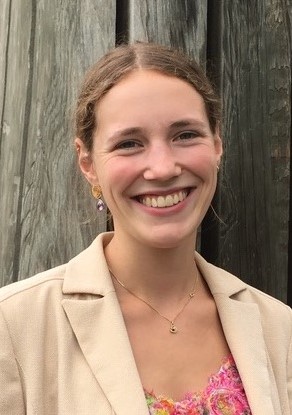
Phoebe Fuhrmann joined the team in July 2021 until October 2022, taking up Emmanuelle Brogat’s responsibilities in the MARIPOLDATA project during her maternity leave.
Besides her position in Maripoldata, she worked part time as a research fellow for the nexus Institute for Cooperation Management and Interdisciplinary Research in Berlin with a focus on sustainability and participatory projects. She was also the editorial officer for the scientific journal Innovation: The European journal of Social Science Research. Previously, she has been working in a consulting agency that deals with participation and change processes as well as organizational and democracy development. She holds a bachelor in Cultural Studies and a master in European Studies.
Dr. Arne Langlet
Former PhD student
Arne Langlet is a PhD student in MARIPOLDATA. He studied the Bachelor European Studies at Maastricht University. After having visited the Universities of Coimbra (Portugal) and Sciences Po Paris, he completed the joint Master International Relations at Humboldt University Berlin, Freie University Berlin and the University Potsdam in 2019. His focus lies on international and European environmental policy, the political economy of environmental and climate policy and the study of international institutions and regimes. Methodologically, he is interested in quantitative methods and the application of network and system analysis methods on international politics.
Selected Publications:
Langlet, Arne and Vadrot, Alice B.M. (2023). IOs in the BBNJ Regime Complex – the dataset. Data in Brief, In Press, 109153
Langlet, Arne and Vadrot, Alice B.M. (2023). Not ‘underming’ who? Unpacking the emerging BBNJ regime complex. Marine Policy 147: 105372
Langlet, A., Wanneau, K., Dunshirn, P., Ruiz Rodríguez, S., Tessnow-von Wysocki, I. & B.M.Vadrot, A. (2022). A matter of time: the impacts of Covid-19 on marine biodiversity negotiations. Négociations, 37, 39-65.
Dr. Ina Tessnow-von Wysocki
Former PhD Student
ina.tessnow-vonwysocki@univie.ac.at
Ina Tessnow-von Wysocki is a PhD student in the department of Political Science at the University of Vienna. She studied a Bachelor of Politics, International Relations and Asian Studies at Griffith University in Brisbane, Australia and completed her Master degree in International Relations with the joint programme at Humboldt University, Freie University and University Potsdam.
Throughout her studies, she gained insights into research at the Institut Barcelona d’Estudis Internacionals (IBEI) in Spain and the University of British Columbia, Vancouver in Canada. Her work concentrated on Environmental Politics and she received the German scholarship for Climate Impact Research (Deutschlandstipendium für Klimafolgenforschung), as well as funding from the “University Alliance for Sustainability“.
After her work experiences in climate and foreign policy in the German Federal Government, NGOs and think tanks, she specialised in International Cooperation on environmental issues. Her master thesis dealt with the topic of International Cooperation for the Protection of Global Public Goods regarding the problem of marine plastic pollution. Emphasis of this research was on legally binding multilateral environmental agreements and the contribution of treaty design to success and failure of international environmental regimes.
Selected Publications:
Tessnow-von Wysocki, Ina and Vadrot, Alice B.M. (2022). Governing a Divided Ocean: The Transformative Power of Ecological Connectivity in the BBNJ negotiations. Politics and Governance
Tessnow-von Wysocki, I. and Vadrot, A. (2020). The Voice of Science on Marine Biodiversity Negotiations: A Systematic Literature Review. Frontiers in Marine Science 7: 614282
Tessnow-Von Wysocki, Ina & Le Billon, Philippe. (2019).Plastics at Sea: Treaty Design for a Global Solution to Marine Plastic Pollution. Environmental Science and Policy 100 (10): 94-104
.
Dr Krystel Wanneau
Postdoctoral researcher
krystel.wanneau@univie.ac.at
Krystel Wanneau is a postdoctoral researcher at the Department of Political Science of the University of Vienna and a research fellow at the REPI research unit of the Université libre de Bruxelles (ULB). She is also a research fellow of the Canada Research Chair in International Political Economy at the Université Laval (ULaval). Krystel completed her MD at Sciences Po Grenoble and holds a PhD in Political Science from the ULaval and ULB.
Her work lies at the intersection of environmental politics, expertise and international organizations. She has conducted extensive research on the United Nations environmental programme (UNEP) to understand its authority from the perspective of its experts’ networks and careers. She specifically focused on UNEP’s expertise responding to areas affected by the global ecological crisis, armed conflicts and disasters. Since 2019, she has put together a seminar with colleagues from the ULB to question how humans relate to their environment and currently co-edits a collective book about vital actor network politics.
Her involvement in MARIPOLDATA specifically addresses the conduct of ocean science laboratory ethnography and the study of science-policy interrelations stemming from the BBNJ Treaty’s controversies.
Selected Publications:
De Pryck, K., & Wanneau, K. (2017). (Anti)-boundary work in global environmental change research and assessment. Environmental Science and Policy, 77, 203-210
Wanneau, K. (2016). Security Dialogue on the Edge of International Security Studies: Uncovering a Process of Innovation. In R. Coman & J.-F. Morin (Eds.), Political Science in Motion. Bruxelles: Éditions de l’Université de Bruxelles
Wanneau, K., & La Branche, S. (2015). Les défis de l’adaptation locale au changement climatique à la croisée de la science et de la société. In P. Béringuier, F. Blot, B. Desailly, & M. Saqalli (Eds.), Environnement, politiques publiques et pratiques locales: L’Harmattan
Wanneau, K. (2013). Changements Environnementaux et Conflits. In J. P. Vettovaglia, A. Diouf, C. Desouches, J. du Bois de Gaudusson, J. Maïla, A. Salifou, G. Tsaï, & P. A. Wiltzer (Eds.), Déterminants des conflits et nouvelles formes de prévention: Bruylant
Wanneau, K. (2011). Sécuriser le changement climatique. In S. La Branche (Ed.), Le changement climatique. Du méta-risque à la méta-gouvernance (Vol. Sciences du risque et du danger, pp. 103-129). Paris: Lavoisier
Julia Chapotot–Necker, BA
Research Support & Management
julia.chapotot-necker@univie.ac.at
Julia Chapotot–Necker joined the Team in July 2023, taking up Emmanuelle Brogat’s responsibilities in the MARIPOLDATA project during her maternity leave.
She holds a Bachelor degree in European Studies from Maastricht University in the Netherlands and a Master degree in Political Sciences from the University of Vienna. Before joining MARIPOLDATA, she has worked in the non-profit sector for organisations such as Amnesty International and Ehe Ohne Grenzen as a coordinator.
AFFILIATED RESEARCHERS AND RESEARCH FELLOWS
Paul Dunshirn, MA
PhD Student
paul.dunshirn@univie.ac.at +43-1-4277-28803
Paul Dunshirn is a PhD student at the research platform “Governance of digital practices” (University of Vienna). He is an affiliate researcher at the ERC-funded project MARIPOLDATA.
Paul has a background in political science and anthropology. His current research focuses on questions of governance and global equity around marine genetic resources. Using computational methods, he traces marine genetic resource pathways from the moment of sampling to scientific research and patenting to provide a better empirical grounding to current debates in the context of the BBNJ negotiations and the CBD.
Silvia C. Ruiz R.,MA
phd Student
Silvia C. Ruiz R. is a phd student at the Department of Political Science at the University of Vienna. She has been awared a Sowi:Docs Fellowship by the Vienna Doctoral School of Social Sciences. Silvia worked as a Master Student Assistant in MARIPOLDATA from February 2020 until September 2021. She stays closely connected to MARIPOLDATA with her phd project focusing on the role of knowledge on the physical and digital multilateral spaces of the Convention on Biological Diversity (CBD) and BBNJ Negotiations with regards to marine spatial closures.
Silvia has a Master in Political Science form the University of Vienna and a Bachelor degree of Law from the Metropolitan University in Caracas, Venezuela. Her bachelor thesis examined the Double Legal Domicile of Minors in International Adoption Cases in the Venezuelan System of Private International Law. She received a Master’s degree in Piano Performance and Piano Pedagogy at Baylor University, Texas in 2015.
Her main interests lie on international ocean protection, political ecology, and multilateral diplomacy.
Selected Publication:
Vadrot, Alice B.M., Ruiz-Rodríguez, Silvia C. (2022). Digital Multilateralism in Practice: Extending Critical Policy Ethnography to Digital Negotiation Sites. International Studies Quarterly 66 (3)
Daria Sander, BA
Master Student
Daria Sander is a Master student of political science at the University of Vienna, where she has also completed her Bachelor’s degree. She studied at the University of Applied Sciences in The Hague and Sciences Po Paris (Environmental Policy). Daria worked with MARIPOLDATA from April until August 2022 as a student assistant.
She remains closely linked with the project since she writes her Master thesis in the project. Her thesis topic is the introduction of Indigenous knowledge in the BBNJ negotiations.
Her interests include environmental policy, international politics, political ecology and social-ecological transformation. Besides her position in MARIPOLDATA, she works as a tutor for the lecture Internationale Politik at the Department of Political Science.

Dr Petro Tolochko
Postdoctoral researcher
Petro Tolochko was a postdoctoral researcher at the Department of Political Science and MARIPOLDATA between May 2019 and April 2021. Petro completed his Master’s degree at the University of Amsterdam (ASCoR) and defended his doctoral thesis at the University of Vienna. His doctoral thesis was concerned with the automated approached to determine the text complexity of political texts.
He is interested in statistical modelling, text-as-data methodology and social network analysis.
Selected Publications:
Tolochko, Petro and Vadrot, Alice B.M. (2021). Selective world-building: Collaboration and regional specificities in the marine biodiversity field. Environmental Science & Policy
Tolochko, P. and Vadrot, A. (2021). The usual suspects? Distribution of collaboration capital in marine biodiversity research. Marine Policy 124 (2)
Tolochko, P., Song, H., & Boomgaarden, H. (2019). “That Looks Hard!”: Effects of Objective and Perceived Textual Complexity on Factual and Structural Political Knowledge. Political Communication 36 (4): 609-628
Tolochko, P., & Boomgaarden, H. G. (2019). Determining Political Text Complexity: Conceptualizations, Measurements, and Application. International Journal of Communication 13: 21
Tolochko, P., & Boomgaarden, H. G. (2018). Analysis of Linguistic Complexity in Professional and Citizen Media. Journalism Studies 19 (12): 1786-1803
Trilling, D., Tolochko, P., & Burscher, B. (2016). From newsworthiness to shareworthiness: How to predict news sharing based on article characteristics. Journalism & Mass Communication Quarterly 94 (1): 38-60
MARIPOLDATA INTERNATIONAL ADVISORY NETWORK
Our international advisory network involves researchers and practitioners recognized for their expertise and work in various fields such as international relations, public policy, the social study of science, ocean governance, global environmental politics and law of the sea.
The philosophy of this group is to exchange views and provide advice on recent developments of MARIPOLDATA research material and activities.
Occasionally, members are welcomed on-site in Vienna to attend group workshops and hold presentations about their work in the framework of the MARIPOLDATA seminar series.
Prof. dr. Sarah de Rijcke
Leiden University, The Netherlands
Sarah de Rijcke is professor in Science and Evaluation Studies & Scientific Director at the Centre for Science and Technology Studies (CWTS) in Leiden. She is chair of the Science and Evaluation Studies (SES) research group.
Prof. de Rijcke specialises in social studies of research evaluation, and has published widely on the topic of the relations between quality control mechanisms and knowledge production in different fields. She has also developed a strong international public academic presence with outreach activities in science policy, speaking frequently on the topic of research evaluation and metrics uses.
Since 2019, she is the Principal Investigator of the ERC Starting Grant project FluidKnowledge – How evaluation shapes ocean science.
Dr. Rob Doubleday
University of Cambridge, UK
Rob Doubleday is the Executive Director of the Centre for Science and Policy (CSaP) since September 2012.
Rob has degrees in Chemistry (Imperial College, London) and Science and Technology Policy (SPRU, University of Sussex). He has a PhD in Geography and Science & Technology Studies from University College London and studied at the Harvard Kennedy School on a Fulbright Scholarship.
His research interests include the role of science, evidence and expertise in contemporary societies, in particular the relationship between scientific advice, public policy and democracy. His research develops collaborative methods of working with scientists and engineers on the public policy dimensions of their research.
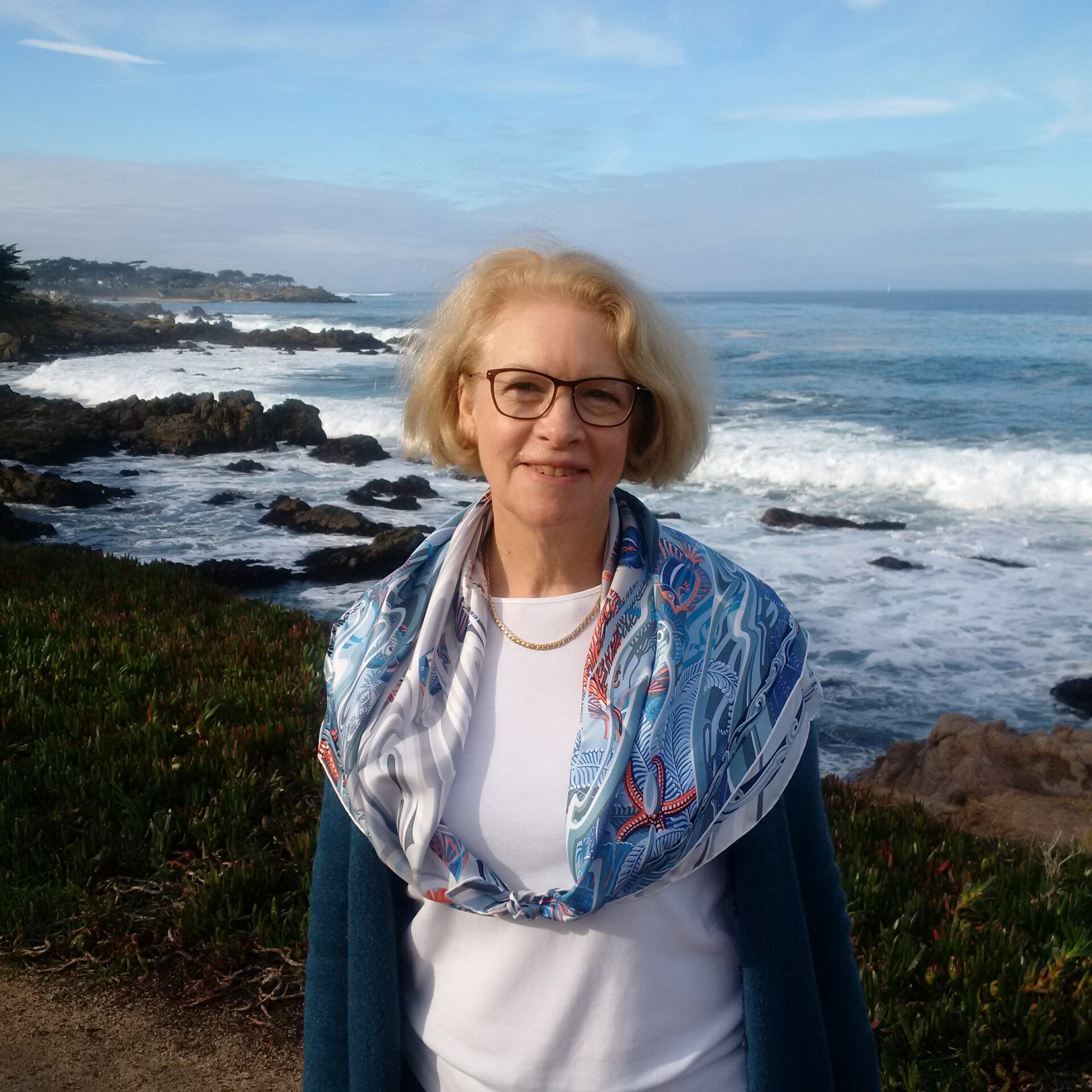 Dr. Kristina M. Gjerde
Dr. Kristina M. Gjerde
IUCN and Middlebury Institute of International Studies, USA
Kristina M. Gjerde is Senior High Seas Advisor to IUCN’s Global Marine and Polar Programme and adjunct professor at the Middlebury Institute of International Studies at Monterey, California, where she teaches international marine law.
For almost 30 years, Kristina has worked on the progressive development of international law of the marine environment, with a focus on the high seas and international seabed Area. Her interests include ocean governance, shipping, fishing, deep seabed mining, as well as tools and technologies for advancing marine biodiversity conservation and sustainable use. To advance science-based progress, Kristina co-founded and currently serves on the boards of four initiatives: Deep Ocean Stewardship Initiative (DOSI), a multidisciplinary scientific partnership, Global Ocean Biodiversity Initiative, Sargasso Sea Project and the High Seas Alliance. Kristina is also a member of the Executive Planning Group of the UN Decade of Ocean Science and an advisor to the Schmidt Ocean Institute. Her work was recognized with a 2018 Boat International Ocean Visionary Award.
Kristina received her Juris Doctor from New York University School of Law with a focus on comparative and international law, and practiced admiralty law for several years in a New York City law firm.
Dr. Leandra Regina Gonçalves
University of São Paulo, Brazil
Leandra Regina Gonçalves is a Post-doctoral research at the Oceanographic Institute of the University of Sao Paulo and a visiting researcher at the University of California Santa Barbara (Bren School of Environmental Science and Management).
In addition, she is a Young Fellow for the Brazilian Platform on Biodiversity and Ecosystem Services (NEPAM/BPBES) as well as a Research Fellow in the Earth System Governance Project, and Lead Author for the United Nations Environment Programme (UNEP) Global Environment Outlook 6.
Her main research interests are policy, institutions and management in the context of sustainable development and environmental governance.
 Dr. Hannah Hughes
Dr. Hannah Hughes
Cardiff University, UK
Hannah Hughes is a lecturer in the School of Law and Politics at Cardiff University.
Her research explores the relationship between knowledge and power in global environmental politics, which she has studied through the Intergovernmental Panel on Climate Change (IPCC).
Hannah is particularly interested in adapting the sociology of Pierre Bourdieu and exploring new methodologies for deepening our understanding of the intertwinement between knowledge, authority and social order in the global response to environmental degradation.
Prof. Peter Jacques
University of Central Florida, USA
Peter Jacques is a Professor of Political Science and affiliate faculty of UCF’s National Center for Integrated Coastal Research. He has extensive experience in the field of environmental politics and sustainability.
He is President of the Association of Environmental Studies and Sciences for the term June 2018-June 2020.
His research interests include Global Environmental Change, Sustainability Science, Indigenous Sustainability Issues, Ocean Conservation, Climate Change and Political Ecology/Green Political Theory.
Prof. Jean-Frédéric Morin
Laval University, Canada
Jean-Frédéric Morin is Full Professor at the Political Science Department of Laval University (Québec City, Canada). Before being invited by Laval University to hold the Canada Research Chair in International Political Economy, Jean-Frédéric Morin was professor of international relations at the Free University of Brussels from 2008 to 2014 and post-doctoral researcher at McGill University from 2006 to 2008.
Jean-Frédéric Morin is also senior fellow at the Centre for International Governance Innovation (CIGI), senior fellow of the Earth System Governance Project, and member of the McGill University’s Centre for Intellectual Property Policy (CIPP).
His current projects explore the interplay of trade and environmental regimes, the emergence of legal innovations, the provision of technical assistance in the field of IP, the design of environmental agreements, and the evolution of investment agreements.
Dr. Thomas Loidl
Federal Ministry for Europe, Integration and Foreign Affairs, Austria
Thomas Loidl is the Head of Unit for International Economic and Environmental Law and Deputy Head of Division for Public International Law of the Austrian Federal Ministry for Europe, Integration and Foreign Affairs. He is Head of the Austrian delegation negotiating the BBNJ treaty.
Dr. Loidl studied law and international relations at the University of Vienna and Georgetown University in Washington, D.C. He received his doctorate in law. He is also a lecturer at the Diplomatic Academy of Vienna.
He was the Austrian Ambassador to Vietnam from 2013 to 2017.
Dr. Julien Rochette
IDDRI, France
Julien Rochette is the Director of the Ocean programme at the Institute for Sustainable Development and International Relations (IDDRI), an independent policy research institute and a multi-stakeholder dialogue platform that identifies the conditions and proposes tools to put sustainable development at the heart of international relations and public and private policies.
He holds a doctorate in public law (University of Nantes) and international public law (University of Milan), and is specialized in legal and policy aspects related to ocean governance.
His work has led him to invest mainly in regional organizations, particularly in the Mediterranean, the Western Indian Ocean, West Africa and the Pacific. Julien is a member of several French and international expert groups and a lecturer in various French universities.
 Dr. Rachel Tiller
Dr. Rachel Tiller
SINTEF Ocean, Norway
Rachel Tiller is a Senior Research Scientist in the section for Circular Bioeconomy at SINTEF Ocean In Trondheim, Norway and an active participant in the SINTEF Center for Clean Ocean Research. She received her PhD in Political Science in June of 2010. Her research focus is on interdisciplinary marine research at all levels of analysis, from individual stakeholders to international organizations.
She was recently a recipient of the Fulbright Arctic Chair Award for 2018-2019. She was affiliated with Texas A&M University at Galveston, and where she collaborated with US researchers on following the treaty negotiations for the International Legally Binding Instrument for the protection of biodiversity in areas beyond national jurisdiction (BBNJ).
GUEST RESEARCHERS
Dr. Monika Berg
Örebro University, Sweden
Monika Berg is a senior lecturer in sociology and has a doctoral degree in political science. She is part of the Environmental Sociology Section at Örebro University.
Dr. Berg worked in close cooperation with the MARIPOLDATA team in March 2020 and developed fruitful research links with the department of Political Science of the University of Vienna.
Monika Berg current research focus on environmental policy, the interaction between science and policy and the handling of ethical conflicts when governing society towards a sustainable transition. In addition Berg has recently headed a research project on the organisation of the welfare state and its implications for institutional trust.
